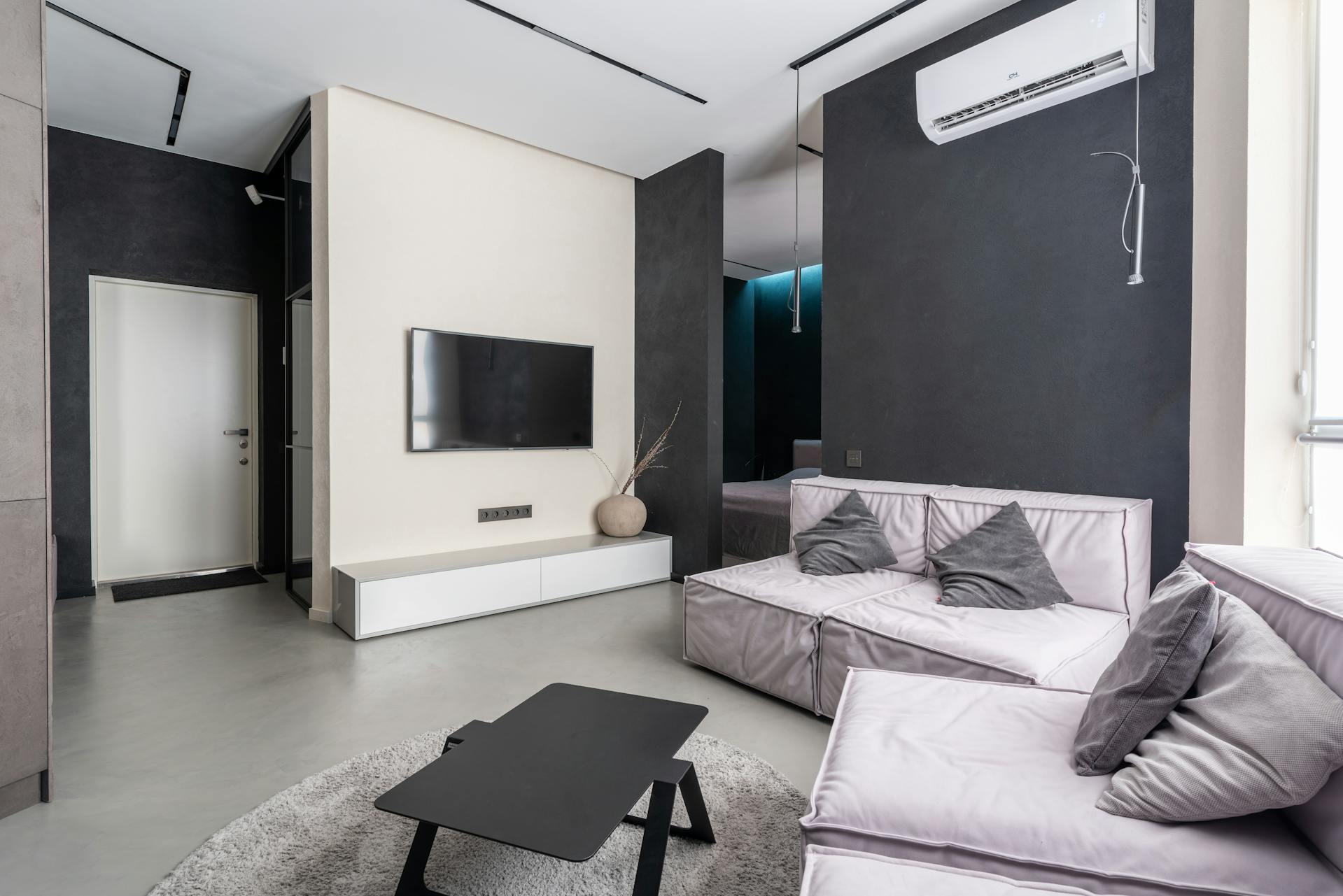PROPERTYSPARK ARTICLE
5 Simple Tips to Maximise Air Conditioning Efficiency
In the sweltering heat of the Australian summer, a well-functioning air conditioning system is essential for comfort. However, many households experience inefficiencies that lead to higher energy bills and a greater environmental impact. Maximising air conditioning efficiency is not just about staying cool; it’s about doing so in a cost-effective and eco-friendly manner.
By following a few simple tips, you can enhance the performance of your AC unit. This means less strain on the system, resulting in lower maintenance costs and longer equipment life. Moreover, efficient air conditioning can significantly reduce energy consumption, benefiting both your wallet and the planet.
In this blog post, we’ll explore five straightforward tips to help you get the most out of your air conditioning system. Implementing these strategies will ensure you stay cool and comfortable throughout the hottest months.

Tip 1: Regular Maintenance
Regular maintenance is crucial for ensuring your air conditioning system runs efficiently. One of the most important maintenance tasks is replacing or cleaning aircon filters. Dirty filters block airflow, forcing the system to work harder and consume more energy. Depending on the type of filter, it should be cleaned or replaced every one to three months.
In addition to filters, the coils and fins of your air conditioner need attention. Over time, coils can accumulate dirt, which reduces their ability to absorb heat. This, in turn, decreases the efficiency of the entire system. Cleaning the coils at least once a year can prevent this buildup. Similarly, the fins should be checked regularly for any damage or blockages to maintain optimal airflow.
Routine maintenance also involves inspecting the overall system for any potential issues. This includes checking the thermostat settings, ensuring the condensate drain is clear, and verifying that the unit is operating correctly. Regular professional check-ups can identify and fix minor problems before they become major, costly repairs. This proactive approach not only improves efficiency but also extends the lifespan of your air conditioning unit.
Tip 2: Optimal Thermostat Settings
Setting your thermostat to optimal temperatures is key to maximising air conditioning efficiency. During the summer, the ideal temperature setting is around 24-26°C when you’re at home. This range provides a comfortable indoor environment while minimising energy consumption. When you’re away, raising the temperature by a few degrees can significantly reduce energy usage.
Programmable thermostats offer a convenient way to manage temperature settings throughout the day. By automatically adjusting the temperature based on your schedule, these devices ensure your air conditioner isn’t working harder than necessary when the house is empty. For instance, setting the thermostat to increase the temperature while you’re at work and cool down just before you return home can result in substantial energy savings.
Utilising advanced thermostat features, such as zoning, can further enhance efficiency. Zoning allows you to set different temperatures for various areas of your home, ensuring that only occupied spaces are cooled. This targeted approach reduces the overall load on your air conditioning system, leading to lower energy bills and a more comfortable living environment. Proper thermostat management is a simple yet effective way to boost your AC’s efficiency and save on costs.
Tip 3: Proper Insulation and Sealing
Proper insulation and sealing are vital for maintaining the efficiency of your air conditioning system. Good insulation helps prevent cool air from escaping and hot air from entering your home, reducing the workload on your AC unit. Check the insulation in your attic, walls, and floors to ensure it meets current standards, as upgrading insulation can significantly improve your home’s energy efficiency.
In addition to insulation, sealing gaps and cracks around windows and doors is essential. Draughty windows and doors allow conditioned air to escape, forcing your AC to work harder to maintain the desired temperature. Use weatherstripping and caulking to seal these gaps, ensuring a tighter seal that keeps cool air inside and hot air out.
Don’t forget about your ductwork, which can also be a source of air leaks. Inspect your ducts for any signs of leaks or damage, and seal them with mastic or aluminium tape. Properly sealed ducts ensure that the cooled air reaches its intended destination without being lost along the way. By improving insulation and sealing, you can enhance your air conditioning efficiency, leading to a more comfortable and cost-effective home.
Tip 4: Utilising Fans and Ventilation
Utilising fans and ventilation can greatly enhance the efficiency of your air conditioning system. Ceiling fans, for instance, help circulate cool air throughout the room, making it feel cooler even at higher thermostat settings. By using fans in conjunction with your AC, you can increase the thermostat by a few degrees without sacrificing comfort, thereby reducing energy consumption.
Proper ventilation is equally important. Ensuring that your home is well-ventilated helps remove excess heat and humidity, which can otherwise burden your AC system. Use exhaust fans in kitchens and bathrooms to expel hot, humid air, and consider installing a whole-house fan to improve overall air circulation. These measures help maintain a more stable indoor temperature, reducing the need for constant air conditioning.
Additionally, pay attention to the direction and placement of your fans. In the summer, set ceiling fans to rotate counterclockwise to create a cooling breeze. Place portable fans strategically to direct cool air into frequently used areas. By effectively utilising fans and ventilation, you can reduce the strain on your air conditioner, lower energy bills, and enjoy a more comfortable living environment.
Tip 5: Smart Usage Habits
Adopting smart usage habits is a simple yet effective way to maximise air conditioning efficiency. Start by closing curtains or blinds during the hottest part of the day to block out heat from the sun. This reduces the amount of work your AC needs to do to maintain a cool temperature inside.
Another smart habit is to use heat-generating appliances, such as ovens and dishwashers, during cooler times of the day. This prevents additional heat from building up inside your home and reduces the strain on your air conditioning system.
Finally, remember to turn off your air conditioner when it’s not needed. Utilise timer functions or smart home devices to ensure your AC operates only when necessary. These habits not only conserve energy but also prolong the lifespan of your air conditioning unit, resulting in lower utility bills and a more sustainable home environment.
Maximise your Air Conditioning Today!
By following these five simple tips, you can significantly enhance the efficiency of your air conditioning system. Regular maintenance, optimal thermostat settings, proper insulation and sealing, effective use of fans and ventilation, and smart usage habits all contribute to a more cost-effective and environmentally friendly cooling experience.
Implementing these strategies will not only keep your home comfortable during the hot Australian summers but also reduce energy consumption and lower utility bills. Take these steps today to ensure your air conditioning system operates at its best, providing you with long-term savings and comfort.
Learn how to Become a Top Agent with the Guaranteed 5 Min/Week System
No social media experience needed
Free webinar seat (limited quantities)
Learn the guaranteed 5 min/week system
Become a social media superstar
Constantly get new leads
Beat the competition
Get a special webinar deal
This Agent Tripled His Commissions Just With Social Media
Learn how this real estate agent tripled his commissions just with social media and how you too can become a social media superstar.
Why You Can’t Just “Boost” Your Real Estate Listing
That big blue button has tempted you before right? You want to Facebook Boost your Real Estate listing. Find out why you shouldn’t!
How Much Should Realtors Spend On Social Media
A question we get often from Realtors is “how much should I spend on social media?” Find out exactly how much to spend and how to spend it without getting ripped off!



